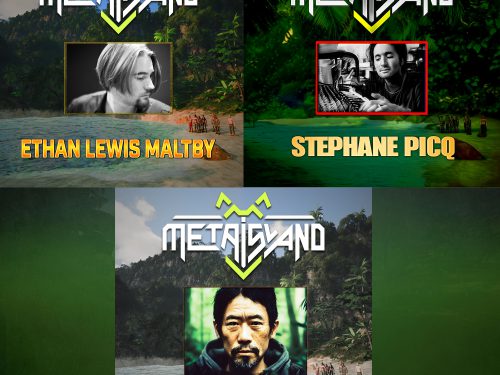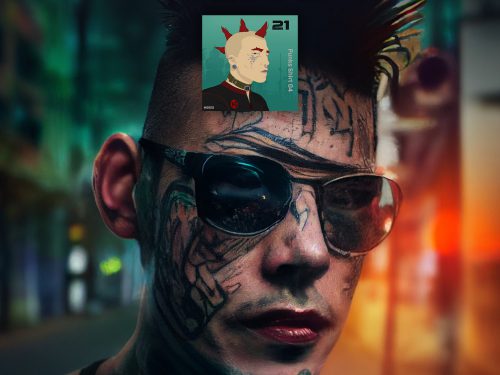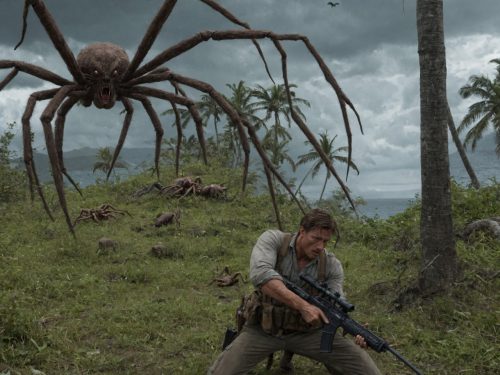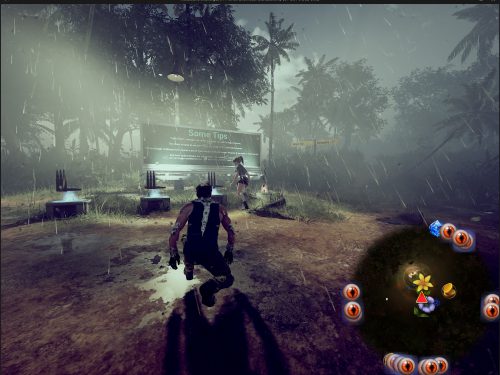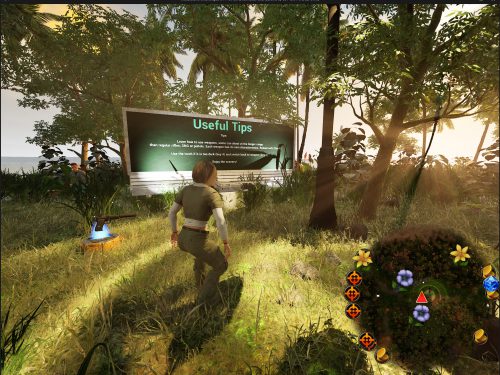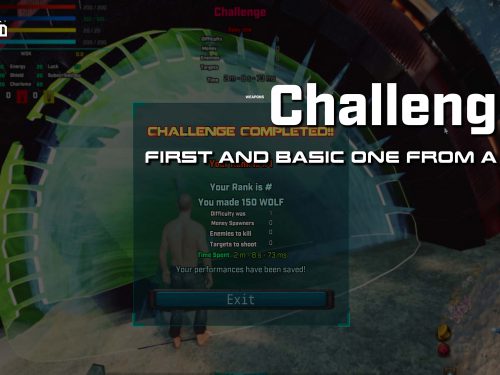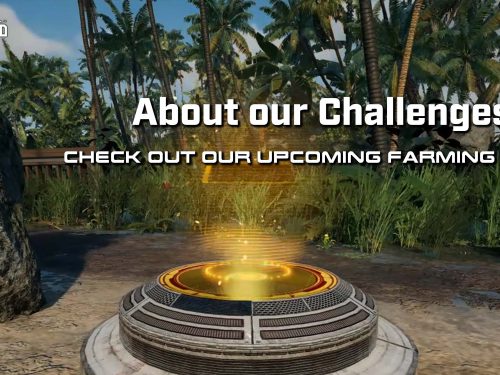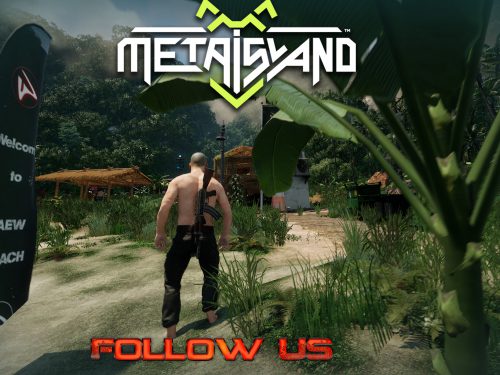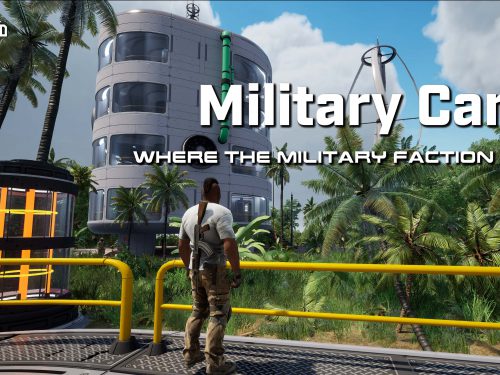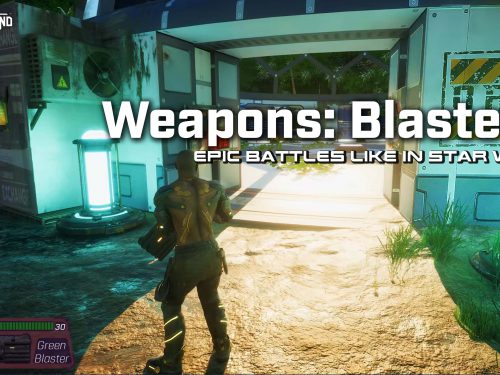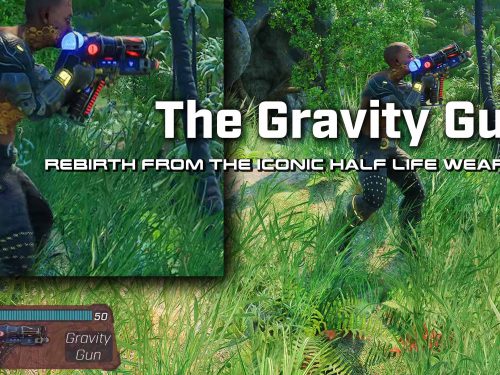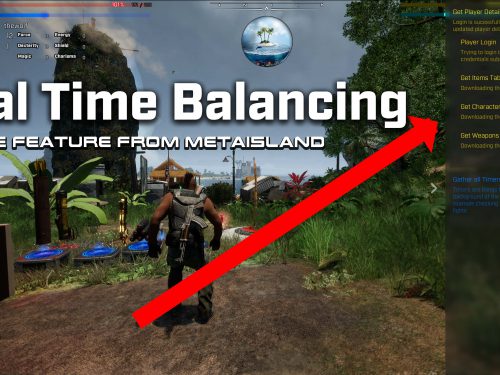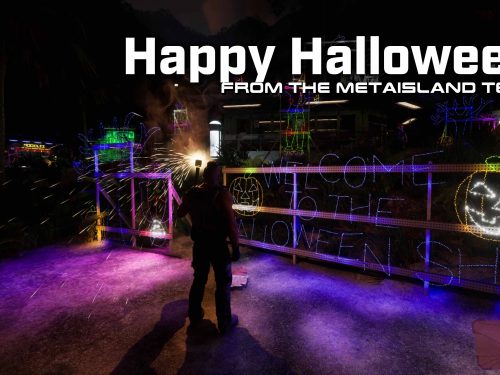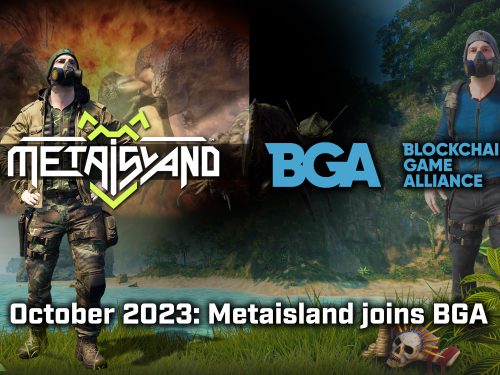The Tribes: Chapter 1- From the Stars (excerpt)
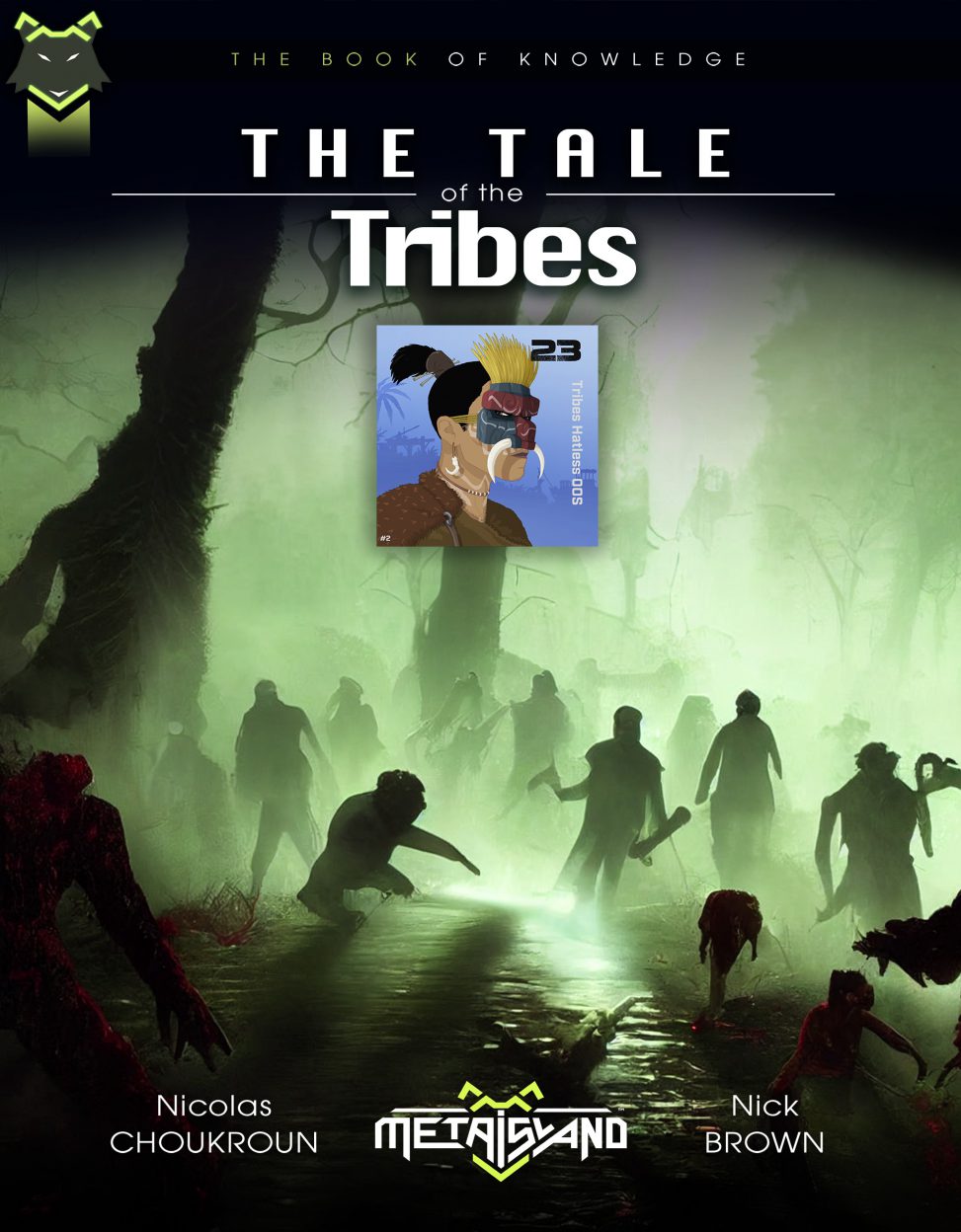
Chapter 1: From The Stars (Excerpt)
This is an excerpt of the book "The tale of the Tribes" which describes how the Punk faction has been created, by who and in which circumstances. Metaisland™ is an unique concept and story. The book will be soon released in Amazon and other book stores. The Tribes have the capacity to resist to poison. There are a lot of poisonous creature in Metaisland, being immune to poison is an edge for survival! The story is an heart breaking story between Dale who is the leader of the Red Cards, it is talking about, love, aging, loss and decay.
The asteroid flies towards Earth, surface glittering beneath the sun’s rays. She is no ordinary asteroid. Attracted by life, she moves with a purpose. She is large; several kilometres across, spinning as she moves. Most of the rock is dark but, embedded within, are shiny, beautiful crystals. These enable her to capture energy, even in the lifeless wastes of deep space. She wants to feel water, earth, fire and air. After many millennia of searching, she has found her final destination. Now is the time for her to release her eggs and ensure an everlasting legacy.
All across the Earth, they watch, from the deserts of the Sahara to the streets of Tokyo; from the jungles of Brazil to the American plains. Telescopes, cameras, phones, all record the asteroid as it enters the atmosphere, glowing and trailing smoke, plummeting towards the ground. Many are happy, many are frightened; all are in awe of this spectacular arrival.
Professor Yuri Nikitin had been monitoring the asteroid for several days, from the moment it was sighted as a tiny dot in the firmament. He knew it was something unusual – something special – by the way it reflected light. From the Russian National Observatory based in Olenegorsk, he used the telescopic array to track its path. He watched as it passed over Sydney, then Mumbai, then Sebastopol. Having alerted his government and numerous other organisations, he sent out an alert when the asteroid began to descend.
Yet it all happened so quickly that – only a minute after the alert – the asteroid crashed in the Arctic, eleven miles south-east of the North Pole. The Russians knew the location because numerous sensors, instruments and scanners picked up the resulting explosion. As a veteran astronomer, Nikitin had developed a network of contacts at observatories and other locations around the world. The Russian facility closest to the site of the impact was Begichev Polar Station. As he sat his desk, smoking manically, Nikitin demanded to know why there was no contact from Begichev. His assistant, Sidorov, returned from the communication room down the corridor.
‘Sorry, professor, we can’t get through. The team think that their coms system could have been knocked out by the explosion. But we do have someone on the line for you. A Captain Fedorov of the submarine General Suvorov. They’re part of the Baltic Fleet and were conducting drills in the region. They surfaced in an area of broken ice and are less than a hundred miles from the impact site. Using the magnification on the periscope they have a view of it.’
‘Put him through immediately,’ ordered Nikitin, pushing his latest cigarette into an overflowing ashtray.
A minute later, he picked up one of three black phones on his desk. ‘Hello, Captain Fedorov?’
‘Yes,’ replied a gruff voice. In the background Nikitin could hear many agitated voices and an urgent, electronic beeping.
‘Please tell me what you see.’
‘It is not unlike a typical mushroom cloud from a nuclear blast. The head is still rising and spreading outwards. It is difficult to see more: the explosion has thrown ice and rock into the air and it’s still falling. Out hull was damaged and the much of the ice around us has shattered.’
As might be expected of a nuclear submarine captain, Fedorov was admirably calm.
‘What can you tell me about-’
Nikitin heard the line go dead. Still holding the phone, he turned to Sidorov, who was gazing at a screen.
‘Line’s gone,’ said Nikitin.
‘Sir, you’ll want to see this. From Begichev Station. They somehow got a message out using morse code.’
Nikitin dragged his chair across to Sidorov’s desk and read the few lines of text:
STATION SEVERLY DAMAGED. BUILDINGS BURNED. AT LEAST FIVE DEAD. CLOUD RELEASING SOME KIND OF PARTICLE. INITIAL EXAMINATION SUGGESTS CRYSTALLINE STRUCTURE.
‘Crystals?’ said Sidorov. ‘In an asteroid? How is that possible?’
‘No idea,’ said Nikitin. ‘But we need to find out.’
Several hours later, the laboratory began to receive reports from populated areas within the Arctic Circle; those nearest to the North Pole. These included Siberia itself, Alaska, Canada, Greenland and Scandinavia. The reports were all similar: the cloud from the crash site had somehow already reached them and medical reports indicated that many people had ingested crystal particles directly into their lungs. As yet, it was not known if these particles were damaging or what the medical consequences might be.
Nikitin lit another cigarette. ‘Thousands of miles, millions of people, and all in a matter of hours. Soon the whole planet will be affected.’
New York. A darkened room.
Outside, endless traffic; humming engines and honking horns. Neon lights cast vivid colours through a gap in the drapes. A TV news channel drones on and on.
Something moves. Within this being are the crystal particles that have now reached every corner of the planet. Tonight, everything will change, though nobody knows it yet. Some changes have already begun. The creature moves past the TV, past the window; a growling, feral abomination, hungry for flesh. It is no longer human.
*
Wolf Chang was checking the upcoming work schedule for the island when Emma van Ness burst into his office. The young scientist looked anxious, eyes wide, a coffee stain on her white shirt.
‘Have you heard of knocking, Miss van Ness?’
‘Sorry, Mr. Chang,’ she replied, shutting the office door behind her.
Wolf generally liked to be out amongst his team but wanted to concentrate on the schedule. This was an annoying interruption.
‘I thought you’d want to know immediately,’ said van Ness, brushing her curly red hair away from her eyes. ‘I’ve had radio contact with Professor Nikitin in Siberia.’
Now Wolf Chang was interested. He moved away from his monitor and removed his glasses. ‘Come and sit down.’
She did so swiftly, leaning forward onto the far side of the desk.
‘Does that mean that the new signal booster worked?’ Chang asked.
‘It’s working well, sir.’
He smiled. Due to the ravages of the virus that had spread across the world, it was hard to make contact with other survivors. While he had guaranteed the survival of those on his island, it was reassuring to know they were not alone.
‘I’ve been trying to contact Nikitin for some time,’ continued van Ness. ‘Though it’s not his field, he was the first to initiate research into the crystals and he now leads the Russian effort. It took me a little while to win his trust but he has passed on their conclusions.’
Emma van Ness let out a long breath and leaned back. ‘Sir, it’s …incredible.’
‘Go on.’
‘The key conclusion is that the crystals are a form of life. They are not found on Earth but can flourish in space, as they did on the asteroid. It was sheer bad luck that meant it crashed here but the consequences …’
‘We all know the consequences.’
‘I’m grateful that you foresaw such a disaster, Mr. Chang. Very grateful.’
‘I did not foresee this. What else did Nikitin tell you?’
‘Practical research is difficult but he has theorised that the crystals are now present everywhere; that they’ve entered the DNA of living beings but also rock, water, wood and every other substance. It seems almost to act like an intelligent entity, modifying the host at will. Nikitin describes it as an “infection” but it does not destroy its host: in fact, it often makes it larger and stronger.’
‘Is it reversible?’ asked Wolf.
‘He thinks not. And he contends that everything will be transformed in one way or another – often in unpredictable ways. As we know, it has already affected humans in the form of mutation and Nikitin believes that, while unpredictable, certain populations will be changed in the same way.’
‘Then there will be groups of mutants. Different categories.’
‘That is the logical conclusion, sir. It is …frightening.’
Wolf clasped his hands and took a moment to compose his thoughts. ‘At least we know. Good work, Emma.’
She took this as her cue to leave. Once she’d gone, Wolf walked over to a nearby window and looked out. The island was as busy as usual with labourers and engineers gathered at the construction sites, security guard manning their posts and dozens of others on the move. Wolf’s gaze shifted from face to face. Now he knew that anyone of them – or many – could become mutants.
He shook his head in disbelief. It didn’t matter how much wealth one accumulated, how many preparations one made, how much knowledge one accrued. No one could predict the future.
